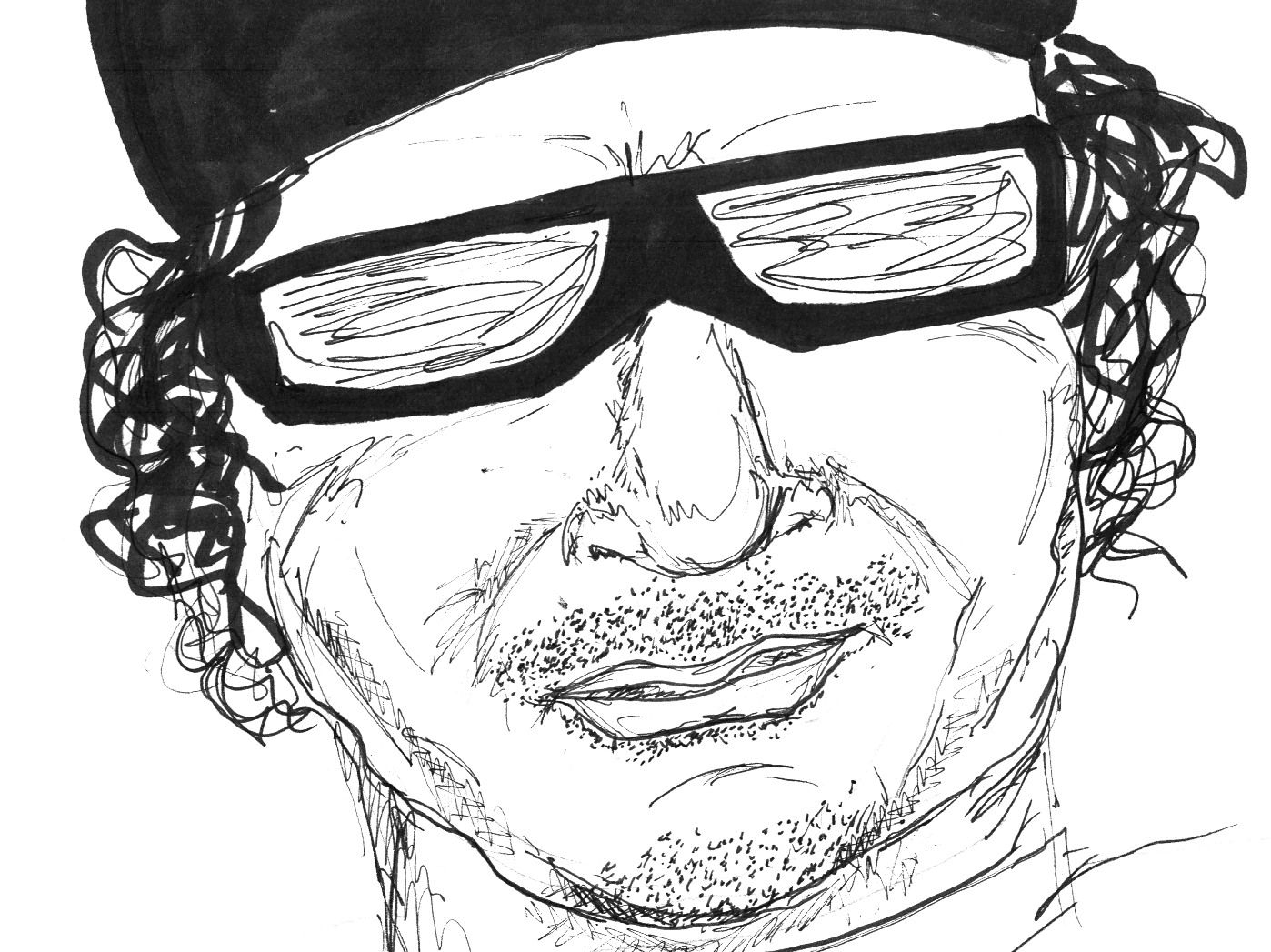
Courtesy of Hannah Bazarian.
Following the wave of popular uprisings in the Arab world, the people of Libya have taken it upon themselves to call for an end to the forty-two-year dictatorship of Muammar Qaddafi and an establishment of democratic institutions. Yet, within the first five days of demonstrations, Libyan protesters have experienced a rapidly climbing death toll, with estimates between three and five hundred.
Unlike the armies of Tunisia and Egypt, Qaddafi’s loyal security forces have struck demonstrators from the ground and from the air, deploying fighter jets to bomb portions of major Libyan cities.
Some reports have even indicated that Qaddafi has called on foreign mercenaries to help quash the uprising. Qaddafi’s waging war against the Libyan people has shown to be more ruthless than Mubarak’s and Ben Ali’s use of reactionary police forces.
Less than a week into popular demonstrations, a question hangs in the air: Can Libya achieve the same objectives as Tunisia and Egypt in the face of excessive bloodshed and an irrational autocrat? Even if Qaddafi puts an end to the use of force and resigns, is Libya in the same position to begin a democratic process?
It will take more than Qaddafi’s ouster to transform the complex tribal system that has kept him in power. Libya lacks a clear political alternative and cohesive military to take the reins in a transition government. As a result, Libya is at greater risk of falling into tribal politics than succumbing to a military rule if Qaddafi leaves power.
Former political dissident Noman Benotman noted that Qaddafi has maintained a weak army in order to prevent an oppositional power base.
Benotman commented further on Libya’s power structure, explaining that it has been largely formed through the Qaddafi family’s alliances with paramilitaries and bolstered by groups of foreign African mercenaries.
However, Libya’s dissolving military might be an indication of` an end to the reactionary violence sooner than we think. On Monday, two air force colonels defected on account of their refusal to bomb civilians, landing their air jets in Malta.
Some other reports have suggested some military units have joined the protesters in a similar vein to many Egyptian soldiers. But Middle East analyst Reva Bhalla believes, “If the regime cannot hold the loyalty of the army, then power in the country falls to the tribes,” resulting in what some say could become an ethnic-based conflict similar to Lebanon’s.
Despite his notoriety as an egomaniac and flamboyant character in the Arab world, Qaddafi has succeeded in using tribal divisions to bolster his regime. He has favored dominant tribes with power and money to keep them at bay, but recently his actions against the Libyan population have withered some of these ties.
Right now, Qaddafi’s best bet to stay in power is to regain tribal loyalty and arm them against the masses. But the dwindling support of his ministers and generals suggests that his end is near.
In his most recent national address, Qaddafi followed his usual erratic tone, speaking like an antiquated king when he proclaimed that he would “die a martyr” before stepping down.
Sandwiched between two successful revolutions, Qaddafi has a reason to fear his demise, but Libyans are the ones with the most at stake.
With a history of tribal-based politics and a lack of a strong middle class and cohesive civil society, the people of Libya must take on a greater endeavor to pave a path toward democracy.
For now, Libyans and global spectators can only hope that the relentless military attacks against civilians will soon come to an end.





